Ikigai: not what you think?
How Western values bend beautiful things into commercial tropes
Writing from a very hot Tokyo.
Thinking about heading out. Weather app says, “just, don’t.”
Ninety-five degrees, similar humidity.
Just came off a week walking part of the Nakasendo Trail with my daughter. It’s a former Edo period (1603-1868) path connecting Kyoto to Tokyo that winds through mountains and post towns in the Kiso Valley in Nagano Prefecture (part of which is known as Japan’s Alps). Often deep in ancient woods, meandering along dirt trails, rough stone paths, and the occasional short stint along highways and byways. Preserved, to this day, more of a pilgrimage route.
The full trail runs about 534 kilometers (332 miles), passing through 69 station towns. We dropped into to a handful of legs in the middle of the trail, traversing two mountain passes and feeling, at moments, like we we’d taken a step back in time. In this heat, we didn’t so much hike as we did walk. Slowly. Deliberately. Shvitzing mercilessly. Ambling from one massive, craggled Japanese horse chestnut tree to the next, rocks covered in moss lent a prehistoric feel to the journey as we found our way over the Torii Pass.
As we wound in and out of small towns, we stayed in ryokans or tiny residence homes along the way. Dropping into a completely different culture, learning to show up and relate on their terms was at once humbling, and yet joyful, and beautiful. Serenaded by one luminous homeowner over the most delicious hand-cooked, endless course dinner, conversing more by gesture than word. And, being told, in no uncertain terms, we’d need to join in the singing.
I loved the slower, simpler elegance that draped everyday life on the trail.
Which was, a week later, obliterated upon emerging into Shinjuku Station in Tokyo. I thought NYC’s Penn Station at rush hour was about the height of madness. In comparison to Shinjuku Station, at more or less any time of day, it’s near pastoral. The contrast is jarring, yet also just a bit intoxicating. Tokyo is, in a word, electric. Another word, mesmerizing. So much kinetic energy, splattering in all directions, all at once. A full calamity of old and new, co-existing in some weird harmony that’s hard to place, let alone describe.
Along the way, I kept finding myself bouncing between these notions of old and new, Eastern and Western. And, how they sometimes dance seamlessly, other times, clash fiercely.
The word, “ikigai” keeps sneaking into my head.
It’s a concept that’s woven through my exploration of work, life, meaning, and joy many times over the years. Supposedly traces back to the Heian period (794-1185 CE). My understanding is that it combines the word roots, "iki" and "gai." The former, often translated as “spirit” or “life,” but in a more nuanced way seems more about a certain joi de vivre, style, or aesthetic sensibility that embraces elegance, aliveness, vitality, and life.
“Gai,” from what I can gather, can shift meanings, depending on the kanji (written character) used to express it. In the context of the word ikigai, it’s more about worth or value, a sense of purpose.
Together, the word translates roughly to reason for being, tending toward a more integrated, grounded, and expansive take. It’s the thing(s), people, experiences or devotions that give you a reason to get out of bed in the morning. That provide a sense of purpose and meaning.
This can range from picking up a grandkid after school and taking care of them in the afternoons to making art to writing, to tending a garden, participating in a community activity, or simply being in a relationship that matters. Or, literally, millions of other things. Simple things, big things, soulful or monetary, private or public.
And, here’s where the concept goes off the rails.
When it meets the Western world.
We love taking ideas that are deeply rooted in the essence and often generations-old ideals and teachings of human flourishing, and turn them into “modern” and “useful” commercial strategies.
Yes, I’m as guilty as the next person.
There’s a meme that’s been floating around the interwebs for years. Often expressed as a Venn diagram. It depicts ikigai as the overlap between four circles:
What you love to do
What you’re good at
What the world needs, and
What you can get paid for
This not only feels reductionist, it seems just plain wrong.
Why do we do this?
Why is it only about things we love to do?
Plenty of people do things they don’t love, maybe even things that are brutally hard, but, that also provide an abiding sense of purpose, and meaning. Does every person love taking care of a another being who is sick or struggling? Often, no. It can be incredibly tough on both parties. Yet, it can also serve as a powerful source of meaning.
Why does everything have to become about what makes us money?
Isn’t it enough that it brings us, or maybe someone we love joy, or lets them breathe a little more easily, feel seen, safe, and held? Safe bet mom’s not in the parenting game for the salary. Can’t we just do it, because it’s a pathway to our own fuller expression?
Why does it have to include some external sense of validation or worth?
Can’t it also be about the simple, internal feeling, knowing who we are, how we’re showing up, what we’re expressing, the very fact of our existence endows us with value? With worth? Can’t an artist, who loses time painting, even just in the evenings and on weekends, feel that the very act of expression and the exploration of craft has value?
What must it only apply to things we’re innately gifted at, or have become highly-skilled at?
I’m pretty terrible at playing guitar, and yet when I get a chance to do it with friends, I feel a deep sense of connectedness, of being exactly where I need to be. Like this moment matters deeply. Why must we limit ourselves to manically exalting the pursuit of mastery over the simple pleasure of doing a thing for no other reason that the feeling it gives us, even when we’re absolute novices, and will likely never be anything but?
And, why must the whole damn world need it?
So, they’re saying that fostering an abandoned animal isn’t enough? You’ve got to build a global network of animal fosters for it to count? And be kick ass at it? And, get paid for it?
Seriously? I mean, SERIOUSLY?!
Is it a lovely thing when we find ourselves centering activities and relationships that check all four boxes from that Venn diagram? Sure. It’s fantastic. At various points in my life, I’ve been able to do just that. And call it my living.
But the simple act of coming home to a deeper sense of self, a truer knowing of who you are and what makes you come alive, then finding ways, channels, moments, paths to let that essence become an increasing part of your life…that’s also enough.
Your reason for being doesn’t HAVE to earn your living, or even a single dime for it to be valid. Nor must you be masterful at it. Or have millions of people line up to demand it of you, then heap praise upon you for it. Nor, by the way, need it be singular. You might have any number of things that bring your life meaning. That lead to a sense of purpose. Or mattering. They all count, even if you can’t point to a single, driving source of all things purpose.
Being here in Japan, especially walking, slowly, sweltering, noticing through ancient woods and tiny towns, seeing the care people give to even the smallest garden patches, plates of food, or interactions reminds me how simple it really is.
Spend as much time as you can lost in activities that fill you up, while surrounding yourself with people you cannot get enough of. Know the very fact of your birth has endowed you with value. With worth. Offer it, along with your heart, your essence, your humor, and wisdom, to others freely.
And leave the Venn diagram to someone else.
Curious, what’s your take?
Share your thoughts in the comments if you’re inclined.
With a whole lotta love & gratitude,
JF
PS - You’ve may’ve noticed I missed last week’s dispatch. Sometimes, you’ve gotta just let yourself drop into where you are (and figure out which way is up, after traveling to the other side of the word, seeing your kid for the first time in months, and getting lost in the woods), and know those who care will still be there. Thanks for for being you. For being awesome! For coming along on this journey with me.
PPS - As always, I come to this topic limited by my own stunningly basic experience and knowledge of Japan, Eastern thought, culture, and language. If I’ve gotten anything wrong or you have insights that’d add context or nuance, I welcome learning and growing from your wisdom and experience.




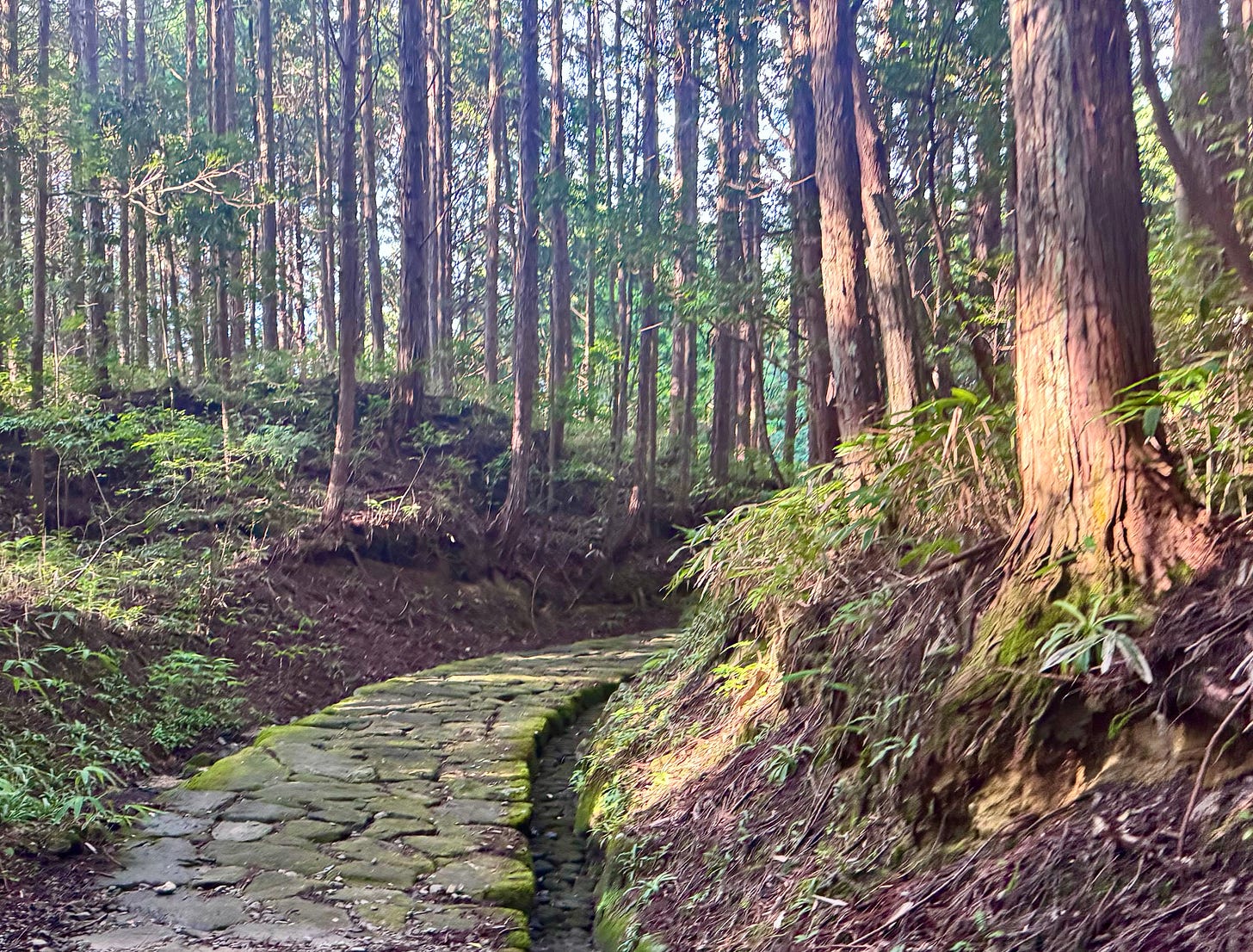
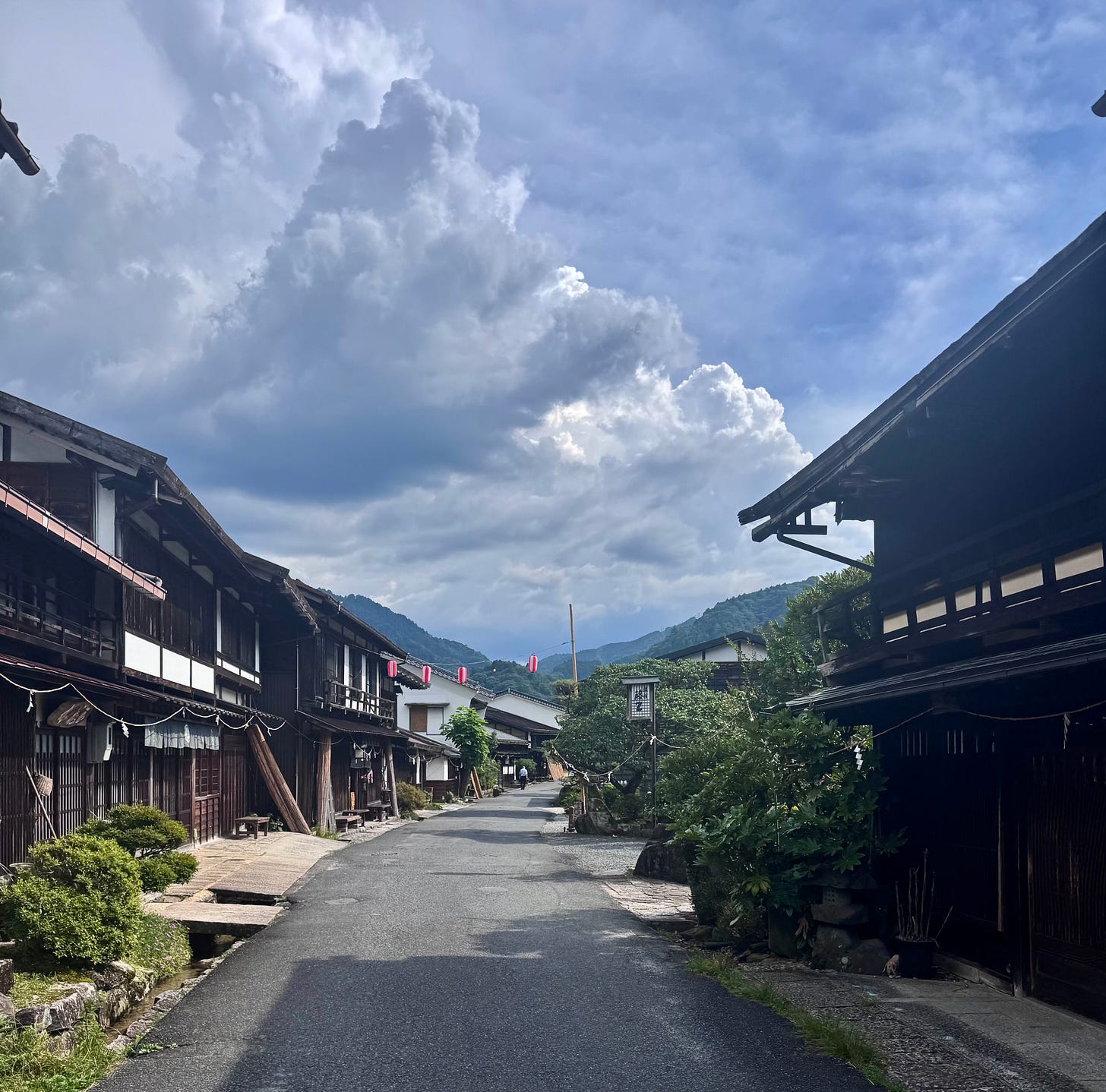
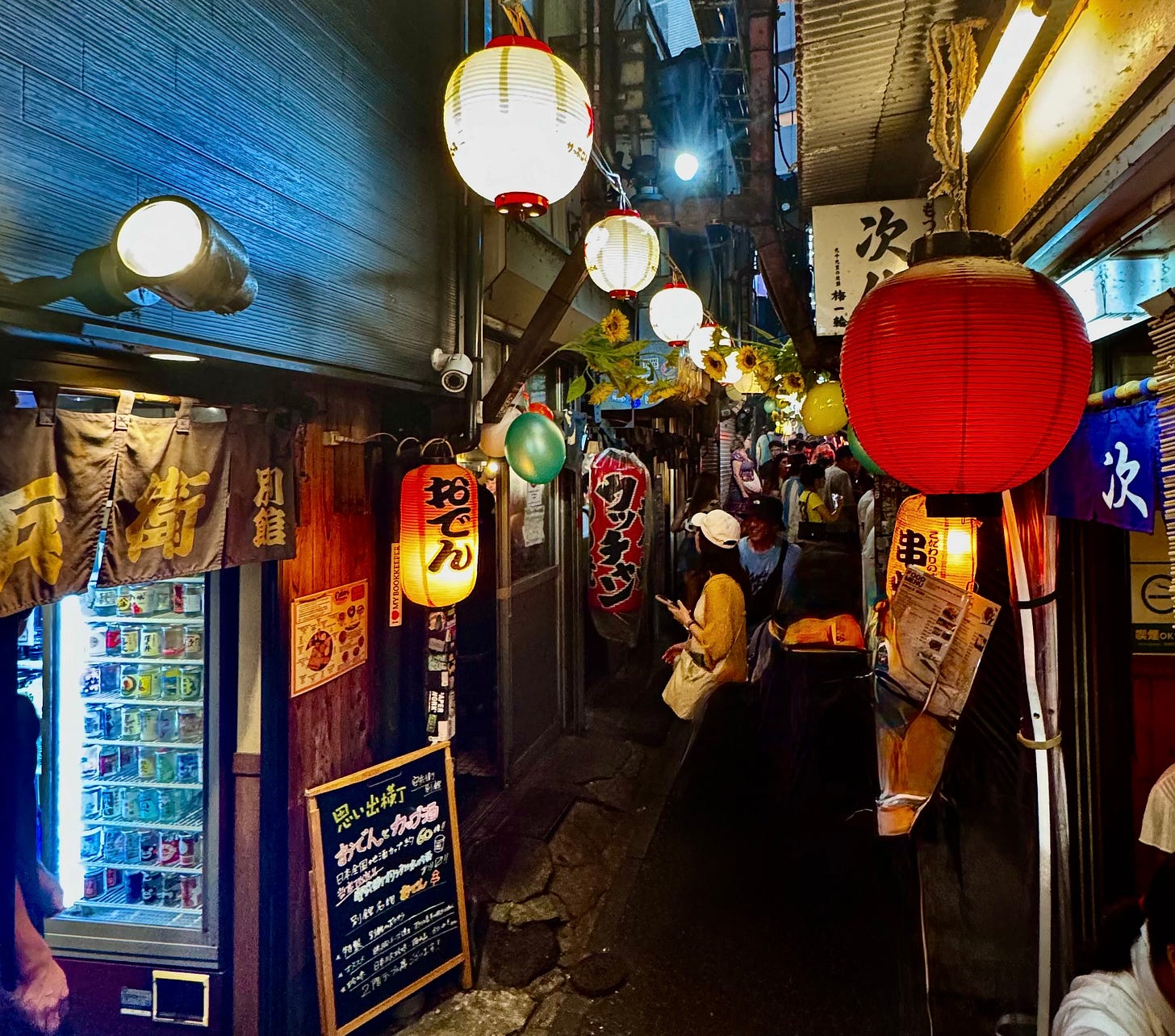
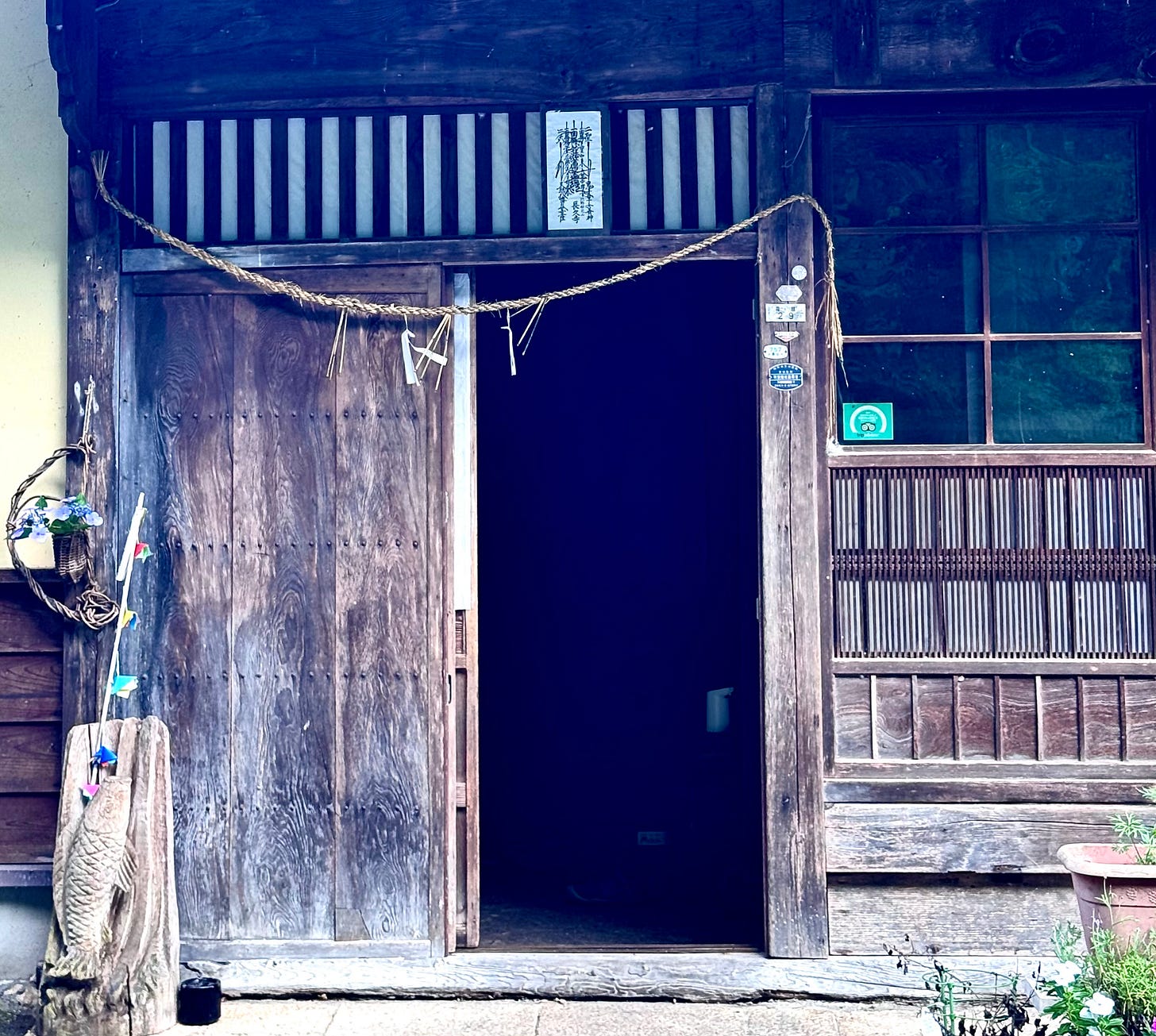
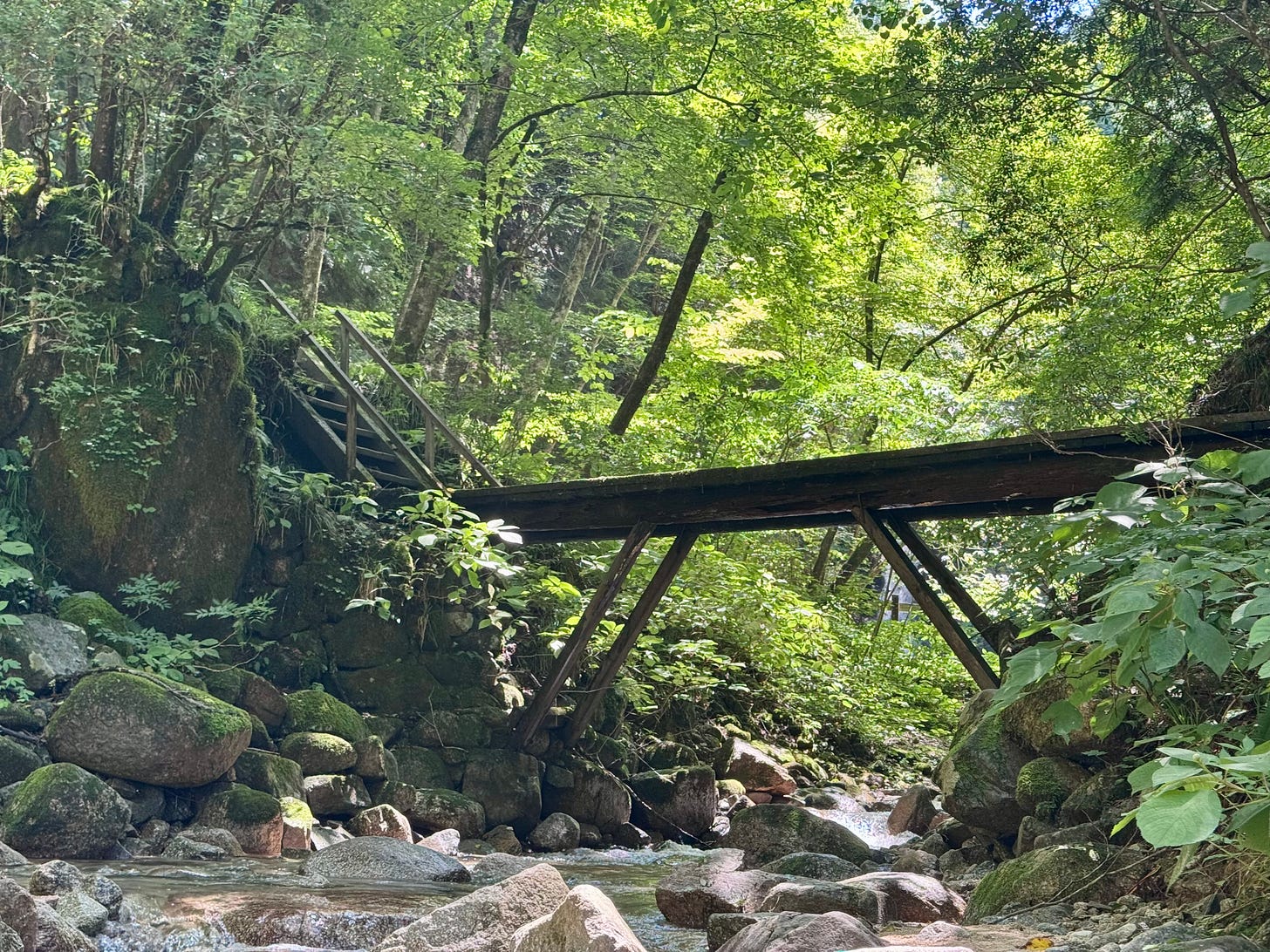
This post is the best yet! Thank you. We all struggle with our purpose sometimes --- when maybe we could be seeking to truly experience the joy of the day to day acts and interactions that define who we are and how we present in this world.
I totally agree, we love to justify our capitalist, large purpose bias by tilting ancient wisdom to align with it. It again shows how our American severing from deep culture and connection to land (replaced with consumerism and productivity) leaves us without a compass with which to align our lives